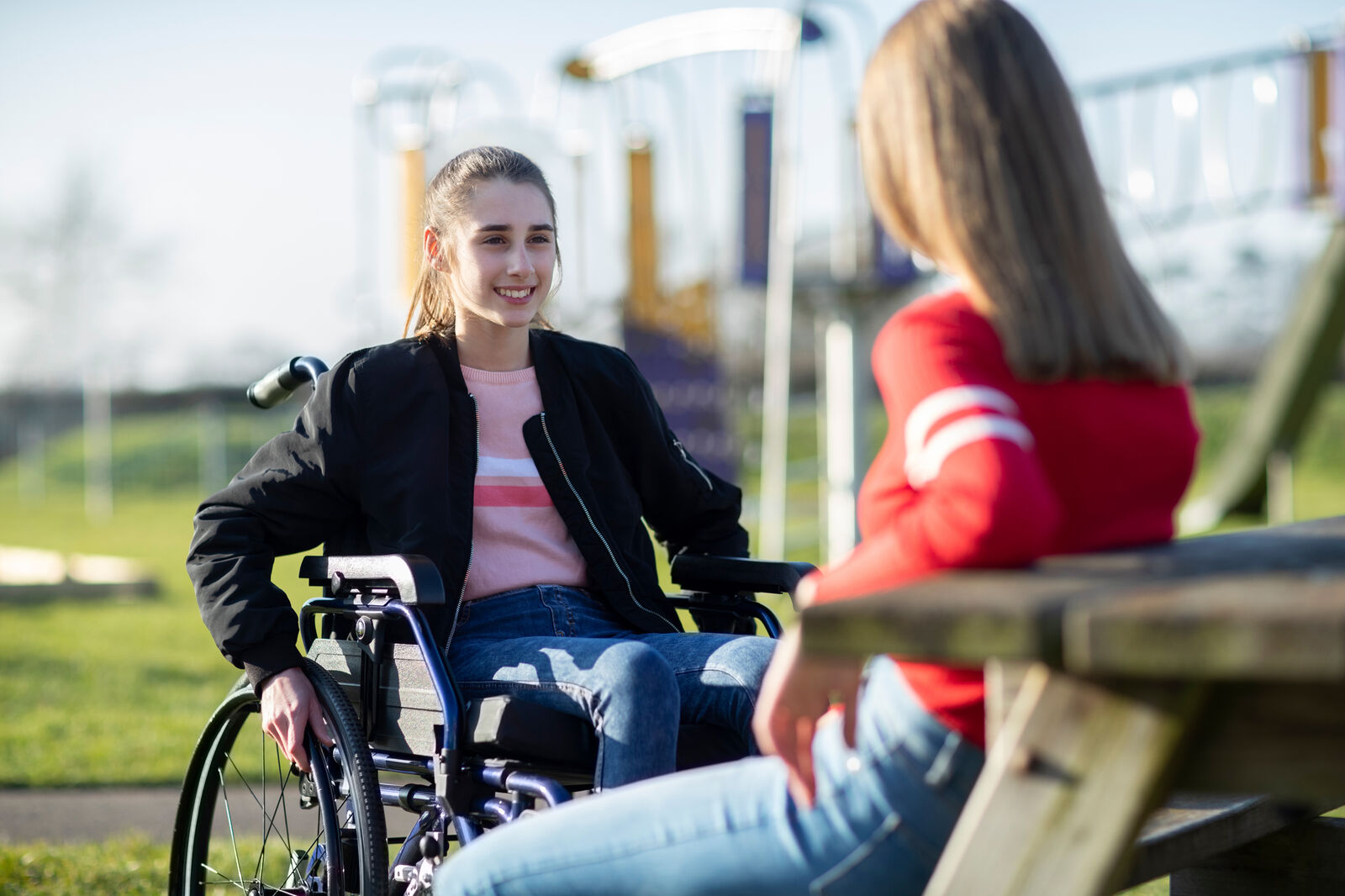People living with disabilities experience sexual, domestic and family violence more often than other people.
Getting help can be especially difficult for someone with disabilities.
Full Stop Australia works provide flexible counselling to suit your particular needs as best as we can.
Sexual, domestic and family violence against people with a disability
People living with disabilities experience sexual, domestic and family violence more often than the general population. People with disabilities are unfortunately more likely than those who do not have a disability to experience sexual, domestic and family violence. Children with disabilities, for example are 2.9 times more likely to experience sexual assault than other children without a disability (ISTSS 2018).
Similarly, women with disabilities are nearly five times more at risk of sexual assault than those without a disability and twice as likely to experience domestic violence.
Men with a disability are nearly seven times more likely to have experienced rape than men without disabilities (ISTSS, 2018).
This violence is usually done by the people closest to them. It might even be done by people who they may rely on for care and support.
Getting help after experiencing violence can be especially difficult for people with a disability.
Services should be accessible to all members of our community, including people with disability.
In NSW, there is currently a Royal Commission into violence, abuse and neglect of people with disabilities. This is an acknowledgement of the violence that has been occurring, to provide an opportunity to uncover the truth about the extent and the nature of the violence, and to look for solutions to improve the safety of and response to these members of our community.
How we work with people with people who have a disability
For our clients who have disabilities, we have found ways to work creatively that best suit them. We recognise that people with disabilities identify by more than their disability or diagnosis. People with disabilities might also be gender diverse, LGBTIQ+, indigenous, religious or identify by another culture or group. It is our intention to view our clients as unique individuals with different needs.
Our clients who have hearing or speech impairments often use our online counselling service, TTY services or the National Relay Service.
Link to the National Relay Service:
National Relay Service website
Some of our clients prefer to be able to hear the voice of the counsellor but are unable to speak clearly and we have used creative solutions to work in a way that suits them using a combination of services.
We also understand that people with disabilities are vulnerable to violence in ways that other people are not, for example due to dependence on the offender financially, for physical care, accommodation and/ or for the delivery of medication and other necessary treatments.
For an offender exercising power and control over another person, these vulnerabilities can be exploited to maintain their power. People with disabilities often express feelings of fear and hopelessness regarding their experiences of violence. There are of course many examples of people with a disability showing incredible strength and resilience, however it is important to acknowledge the additional barriers experienced by these individuals and their community.
We are not experts in working with disabilities, but in our experience, our clients hold the most knowledge about their unique needs and can let us know what works best for them. We also work with other organisations who specialise in working with people with disabilities, for example People with Disability Australia, to learn from their expertise.
Link to People with Disability:
People With Disability Australia website
Given these deeply troubling statistics, and in understanding the additional barriers that people with disabilities face in getting help, it is important to us that we are as accessible as possible to as many people as possible. We encourage you to give us feedback about how we can improve our accessibility by letting your counsellor know directly or;
- Visit our feedback page;
- Send an email to complaints@fullstop.org.au;
- Call us on (02) 8585 0333;
- Send a letter to: Full Stop Australia, PO Box 555, Drummoyne NSW, 2047.
We read and respond to all feedback.
Useful links:
Information for people with disabilities about sexual, domestic and family violence and where to go for help.
Easy read documents about sexual assault.
The Intellectual Disability Rights Service (IDRS) helps people with intellectual disability in NSW with legal issues. You can call IDRS on 1800 666 611.
Videos about domestic and family violence in Auslan:
Get help
To find help with sexual, domestic or family violence in your community, visit our Find a Local Support Service page or speak to our counsellors on 1800 FULL STOP (1800 385 578).


 1800 385 578
1800 385 578